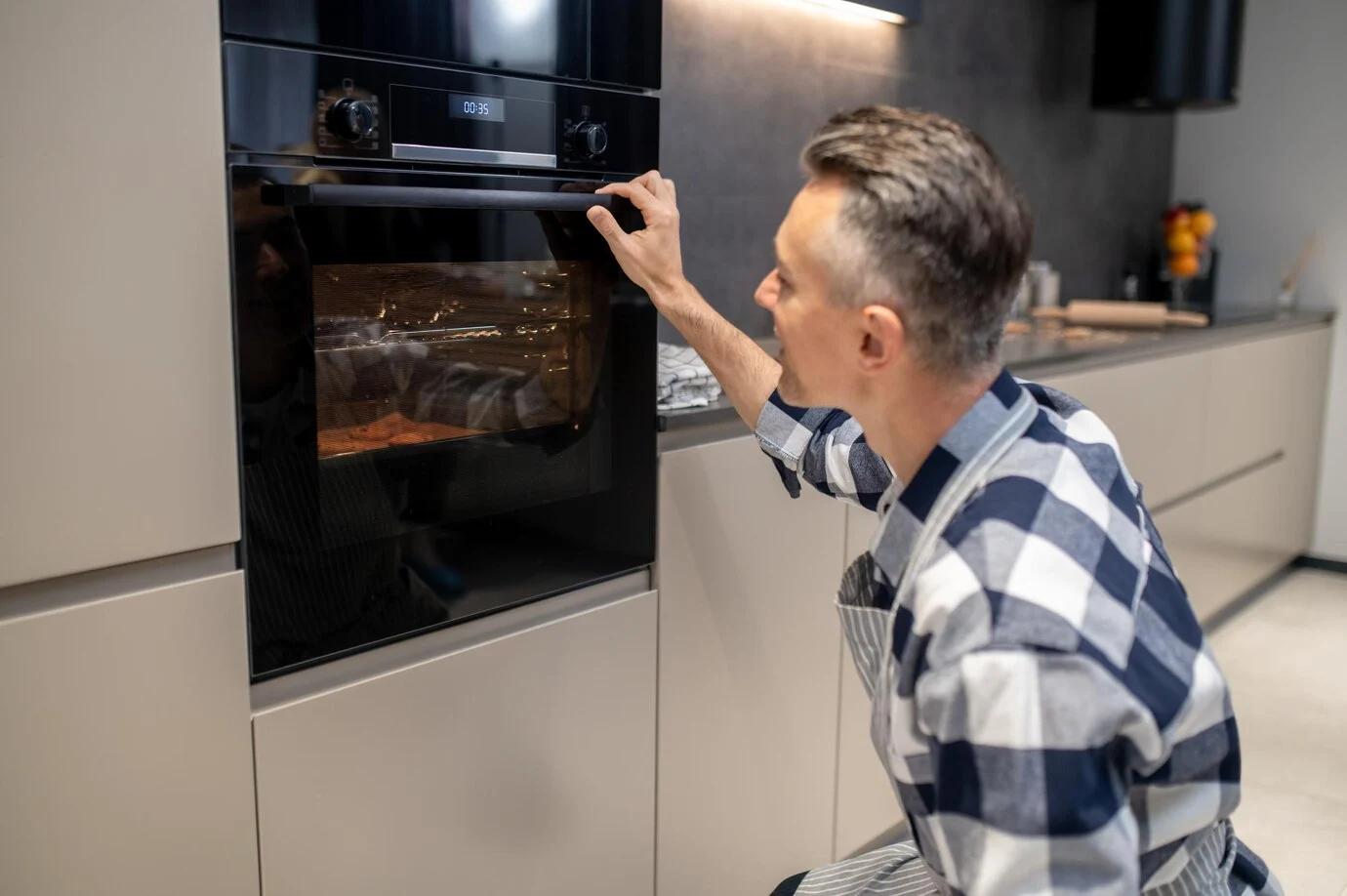Choosing whether to repair or replace your refrigerator can be a challenging decision. With various factors to consider, from cost and energy efficiency to the age and condition of your appliance, it’s crucial to make an informed choice. In this guide, we’ll explore the key considerations and provide expert insights to help you decide the best course of action.
The Age Factor
One of the most significant factors in deciding whether to repair or replace your fridge is its age. Most refrigerators have a lifespan of about 10 to 15 years. As they age, they tend to become less energy-efficient and more prone to breakdowns.
Personal Anecdote: The Old Fridge
I remember my parents’ old refrigerator that served us well for over 12 years. It started making strange noises and wasn’t cooling properly. We faced the tough decision of repairing it or getting a new one. After considering the age and energy efficiency, we decided to replace it with a new, energy-efficient model. The new fridge not only saved us on energy bills but also kept our food fresher for longer.
Cost of Repairs
The cost of repairing your refrigerator is another critical factor. Minor repairs might be cost-effective, but major repairs can quickly add up. According to David Salvatore, an appliance repair technician, “The cost of repairs should be compared to the cost of a new refrigerator. If the repair cost is more than half the price of a new appliance, it might be time to consider replacement.”
Expert Insight: Jack Bishop
Jack Bishop from Good Housekeeping Institute emphasizes, “Repairing your refrigerator can be a cost-effective solution, but it’s important to weigh the cost against the appliance’s age and the severity of the issue. Sometimes, replacing the fridge is the more practical option.”
Energy Efficiency
Older refrigerators tend to be less energy-efficient, leading to higher electricity bills. Replacing an old fridge with a new, energy-efficient model can result in significant energy savings. Mark Goldstein, an energy efficiency expert, notes, “Replacing an older refrigerator with a new energy-efficient model can lead to significant savings on your energy bills. Consider the potential energy cost savings when making your decision.”
Studies on Energy Efficiency
Research from the Department of Energy (DOE) provides valuable data on energy consumption and cost savings associated with newer models. Their studies highlight the benefits of upgrading to energy-efficient appliances, which can reduce your carbon footprint and save you money in the long run.
Food Safety Concerns
A malfunctioning refrigerator can pose serious food safety risks. If your fridge isn’t maintaining the proper temperature, your food can spoil, leading to potential health hazards. Alice Mendes, a food safety expert, advises, “A malfunctioning refrigerator can pose a food safety risk. If the temperature isn’t maintained properly, it’s crucial to address the issue promptly, either through repair or replacement.”
FDA Guidelines
The Food and Drug Administration (FDA) provides guidelines on food safety and storage temperatures. Ensuring your refrigerator maintains these temperatures is essential for keeping your food safe and fresh.
Environmental Impact
When deciding whether to repair or replace your fridge, consider the environmental impact. Repairing an existing appliance can be more environmentally friendly than disposing of it and purchasing a new one. However, if your old fridge is highly inefficient, a new energy-efficient model might be the greener choice in the long run.
Expert Insight: Steve Thomas
Steve Thomas, a kitchen and bath designer, explains, “The age of your refrigerator is a key factor in deciding whether to repair or replace. Older models might be less energy efficient and more prone to breakdowns, making replacement a worthwhile investment.”
Reliability and Durability
When it comes to reliability and durability, consider the brand’s reputation and the appliance’s overall condition. Some brands are known for their longevity and quality, while others may have a higher likelihood of issues.
Expert Insight: Jennifer Ebert
Home improvement expert Jennifer Ebert suggests, “Factor in the age, condition, and energy efficiency of your refrigerator when deciding whether to repair or replace. If the appliance is nearing the end of its lifespan or has multiple issues, replacement might be the best option.”
Repair History
If your fridge has required multiple repairs in the past, it might be a sign that it’s time for a replacement. Frequent breakdowns can be frustrating and costly, making a new appliance a more practical choice.
Personal Anecdote: The Fridge That Kept Breaking Down
A friend of mine had a refrigerator that seemed to break down every few months. After several repair bills, they decided to cut their losses and invest in a new fridge. The new model was not only more reliable but also came with a warranty that gave them peace of mind.
Features and Technology
Modern refrigerators come with a variety of features and technologies that can enhance your kitchen experience. From smart connectivity and advanced temperature controls to improved storage solutions, new models offer many benefits that older fridges simply can’t match.
Expert Insight: Jaimie DeLine
Appliance expert Jaimie DeLine points out, “Beyond aesthetics, consider the interior layout of the refrigerator. Adjustable shelves, door bins, and dedicated storage compartments can significantly impact its functionality and organization.”
Energy Savings and Rebates
Many new refrigerators are eligible for energy rebates and incentives, making them more affordable. Check with your local utility company or government programs to see if you qualify for any rebates when purchasing a new energy-efficient appliance.
Studies on Energy Savings
The National Renewable Energy Laboratory (NREL) focuses on renewable energy and energy efficiency. Their research on appliance efficiency can provide insights into the potential energy savings of replacing an older refrigerator with a newer model.
Making the Decision
When deciding whether to repair or replace your refrigerator, consider the following steps:
- Assess the Age: If your fridge is over 10 years old, it might be time to consider a replacement.
- Compare Repair Costs: Evaluate the cost of repairs against the price of a new refrigerator.
- Check Energy Efficiency: Determine the energy efficiency of your current fridge and compare it to newer models.
- Evaluate Food Safety: Ensure your refrigerator is maintaining proper temperatures to keep food safe.
- Consider Reliability: Take into account the repair history and overall condition of your appliance.
- Explore Features: Look at the features and technologies offered by new models that can enhance your kitchen experience.
Final Thoughts from Experts
Jack Bishop from Good Housekeeping Institute, Steve Thomas, kitchen and bath designer, Alice Mendes, food safety expert, Mark Goldstein, energy efficiency expert, David Salvatore, appliance repair technician, and Jennifer Ebert, home improvement expert, all provide valuable insights that can help you make an informed decision.
In conclusion, deciding whether to repair or replace your refrigerator involves considering several factors, including age, cost, energy efficiency, food safety, and reliability. By weighing these factors and consulting expert advice, you can make the best choice for your home and your wallet. Remember, a well-functioning refrigerator is essential for keeping your food fresh and your kitchen running smoothly.









